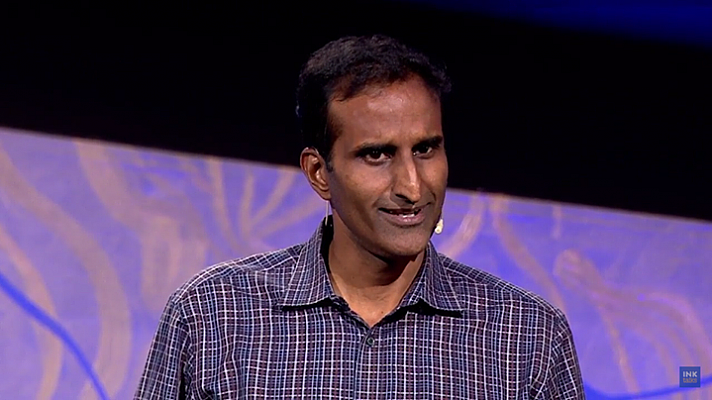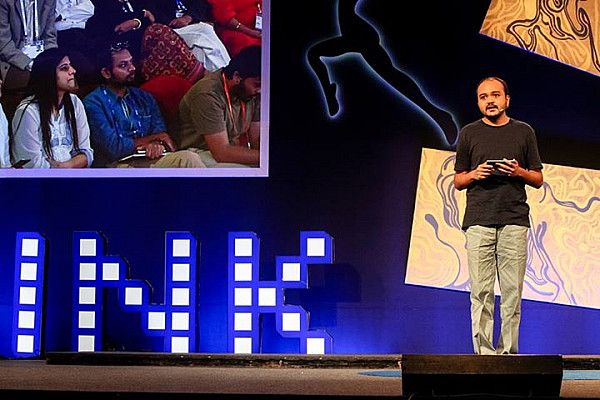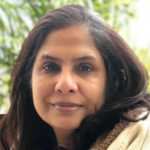The 15 Most Inspiring Speakers at INK 2015
The founder of INK Laxmi Pratury, explained the theme of ‘Disrupt’ by saying that we are moving from an industrial economy to a creative one. She quoted Paul MacCready, “Over billions of years, on a unique sphere, chance has painted a thin covering of life — complex and probable, wonderful and fragile. Suddenly, we humans, a recently-arrived species, no longer subject to the checks and balances inherent in nature, have grown in population, technology and intelligence to a position of terrible power. We, now, wield the paintbrush.” Over the next three days, the speakers told us their stories and how they are going to wield the power of their paintbrush. The speakers included people from all different age groups, disciplines and parts of the world. The audience, she said, were the “gallerists and patrons.” Here is our list of the most inspiring speakers doing the most innovative work.
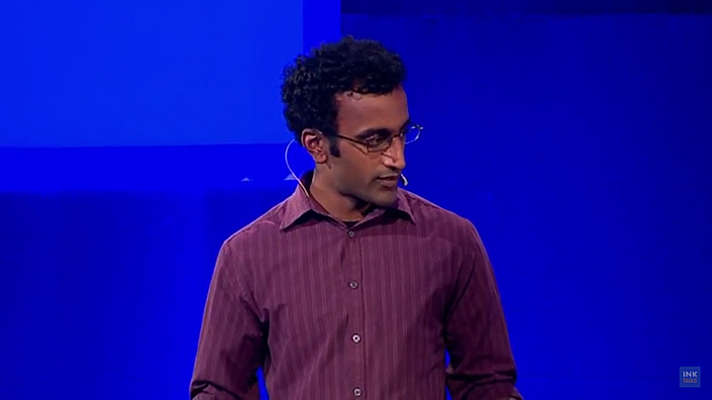
1. Anand Varma, a photographer wanted to “use photos to change the way we see the natural world.” His video showing his work with mind-controlling parasites, which he called the “zombie parasite dubstep music video”, was mind-bogglingly fascinating.
2. Jack Hidary shook up the audience with his quick but energising talk on ‘moonshots.’ A moonshot is a bold goal, a seemingly impossible one. Citing Gandhi as a moonshot-er, he spoke about making your problem not ten times but a hundred times harder and larger than it is and then solving it. Only if we engage in the biggest ideas and try to solve the hardest problems will we solve the greatest challenges facing humanity. Some other examples of moonshots he gave were Virgin Galactic, Google X’s driver-less cars and the Tesla car.
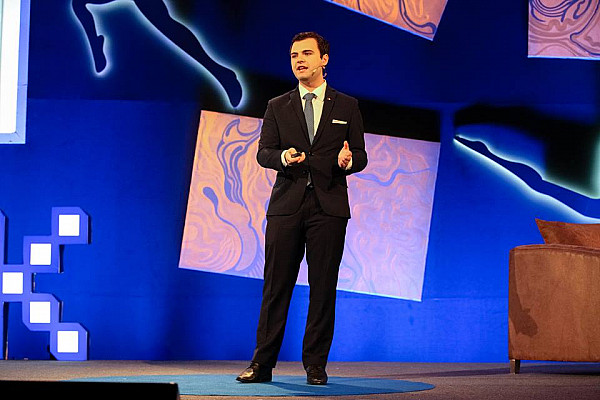
3. Alexandru Ionut Budisteanu is a 21-year old innovator and computer geek from Hackerville, Romania (known as the cyber crime capital of the world). Alexandru, who claims to have learnt English mostly from watching TV shows, has so far built a low-cost self-driving car that uses artificial intelligence, a device that helps blind people see using their tongue and a machine and software that turns prototypes into products. His aim, he says, is to help innovators turn their “ideas to reality” and to make this process affordable for all.
4. Priyamvada Natarajan, a theoretical astrophysicist, called herself a cosmic explorer – “people who are looking to understand and make sense of the grandest things in the universe.” She explained that when we look up into the night sky, we are “looking back in time” at a photo of the younger universe. She called her work, the “archaeology of the cosmos.” Light, she said, “is the cosmic messenger.” We study the properties of light to understand the universe. She then went on to talk about what the cosmic dig has turned up, including evidence that proved the existence of dark matter and the nature of gravity among other things.
5. Balan Ayyar, an ex-U.S Air forces pilot inspired us with his reflections on his journey, and what it taught him. He introduced the concept of the “New Wealth”, saying that today’s entrepreneurs and the youth are not satisfied by just material achievements, they have the desire to have influence and an impact on the world. “It’s my conclusion that it’s the way you live your life, day to day, that determines whether you’ll have that sense of fulfilment, that sense of character that gives you the influence and impact of the New Wealth.” If we don’t reinforce the ideals of integrity, courage and compassion, the ideals we want to live by, all our lives, our characters will never rise to the occasion when called upon to do so. “While I’m moved by the idea of taking on a great challenge, I’m more moved by the manner in which we engage with the world to demonstrate the values which we know are transcendent…the sense of respect you command comes as much from how you live as from what you’ve achieved.”
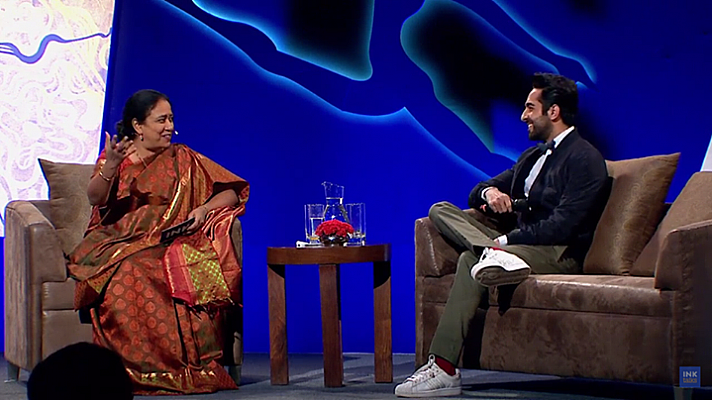
6. Ayushmann Khurrana spoke about his journey from MTV Roadies to becoming a Bollywood actor. Being a be-spectacled, overweight, short young boy who wore braces and wasn’t very good at school, he was always considered an underdog. When asked about how he came to be fearless in his choice of unconventional roles, from Vicky Donor to Dum Laga Ke Haisha, he said, “You only become fearless when you’ve seen a lot of failures in life.”
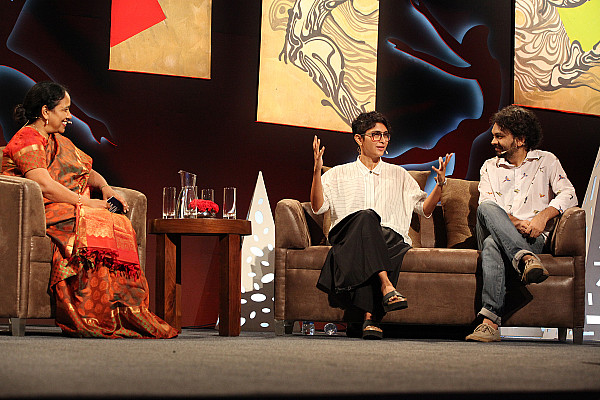
7. “We live such dichotomous lives, people who can’t sit at our table…a whole working class that we keep so separated from ourselves…we see it everywhere, but we’ve come to accept it as normal. And that’s always bothered me and I suppose that found its way into my characters.” Kiran Rao answered when asked about how and why she chose the story and characters of Dhobi Ghat.
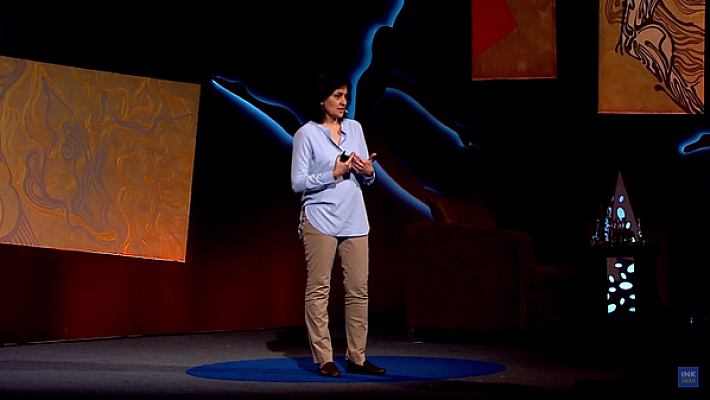
8. “Stories can be a window into our past and they can also be a window into our future.” Shamim Sarif gave a sublime talk on being a woman, a film-maker and a storyteller, against all odds. Like many Indians of her generation, she was expected to become a doctor or engineer, or failing that, marry one. “In fact, I did get married. But where my family were South African and Indian, my partner’s family were Palestinian. Where my family was Muslim, my partner’s family was Catholic. So it felt to people around us that we had very little in common. In fact, we had one major thing in common – we were both women.”
Talking about why she became a film-maker, she said “I write and direct because I want to express and explore.” One of her main themes is choices. “Often these choices become greater when we choose to step outside the boundaries that society places on us or when we choose not to listen to everything that everybody tells us might be correct.” Trying to explain how she made her first film with a strong female lead and without any film-making experience, she said “There were a million reasons not to start down this path and only one reason to start down this path, and that reason was to make the stories that we were passionate about.” When talking about the power of stories she said her most powerful words – “At their very best, stories can tell us who we could be, if we dare…if we dare to challenge taboos.”
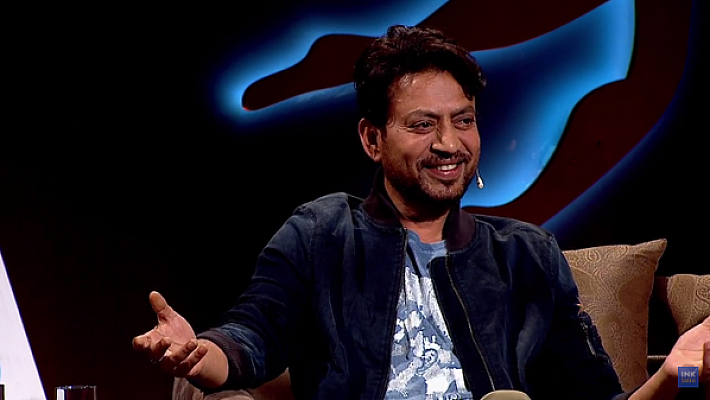
9. “When I started, people used to view me as a good actor, but I could see that I’m not wooing their heart, I’m not creating a spell on them, and they are not carrying memories. They did not carry the experience of my character, my story, home. That changed when I started doing my kind of movies, when I had the confidence to put my own interpretation to the character.” Irrfan Khan on what changed in the last ten years of his career. When asked about the difference between movies in India and the West, he put his finger firmly on the point. “In our industry the centre of the story is the image of the star and all the departments serve that image, all the characters around him serve that image…there the centre is the story, the power of the story…all the departments are working towards communicating that idea, that story.”
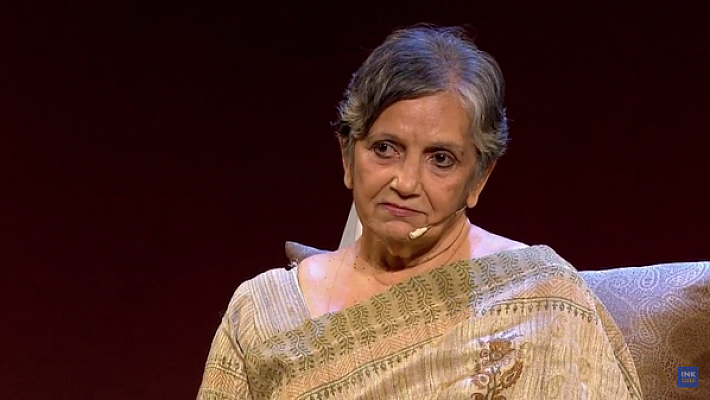
10. Flavia Agnes, a woman who suffered emotional, physical and financial abuse for 13 years, with no support from anyone, has now been at the forefront of the women’s rights movement in the country and is also a legal scholar. Talking about how she overcame such great odds that life kept throwing at her, she said “Every challenge proved to be an achievement, to conquer, to move forward and I’m happy I am where I am today. I’ve always been confident. I always a lot of faith in myself.” Over the years, their movement has helped about 500 rape victims across the country.
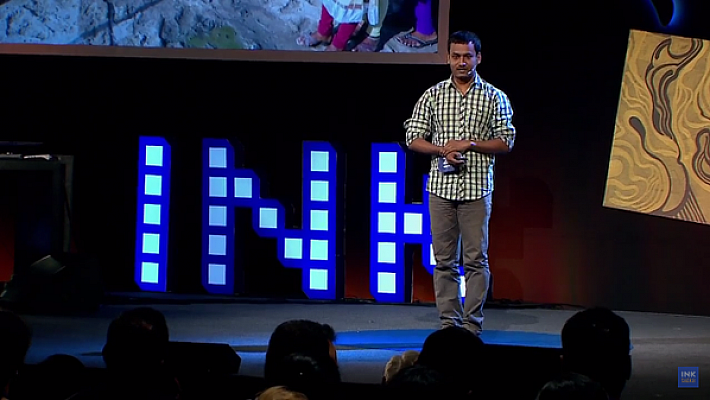
11. Babar Ali, a man from Murshidabad found his calling as an educator at age 9, when he started a school in his backyard, bringing together local children. With no support from the community and nothing but scepticism from village elders, his school which started with 8 children now has 300 regular students, 80% of whom are girls. He left us with these words about what helped him on his journey – “Nothing can stand in the way of firm determination…All you should have in your heart are courage, purity, honesty and above all else, love.”
12. “We took these children on a life changing journey, on this journey of self discovery, of understanding their deepest values and finding their brightest light. We focused on excellence, on increasing self-awareness and on helping them build really strong relationships…we focused on the values of courage, compassion, wisdom.” Education activist Sanaya Bharucha explained the purpose and benefits of staging the Maya musical, a show with original music, created by the Teach for India kids, in collaboration with Broadway artists.
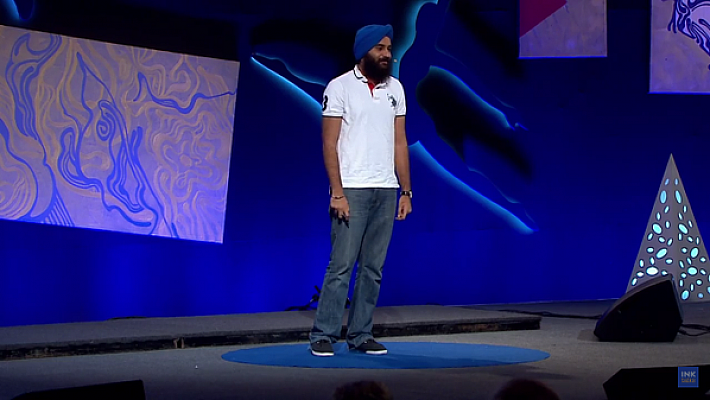
13. “In the 21st Century, what will matter is the right brain. It is not answering questions that matters, it is asking the right questions. Because answers are free in a world with supercomputers in our pockets…what matters are not the skills you learn in college, but skills you learned in pre-school.” Angad Singh, spoke about the importance of creativity, measuring and improving it, in a future where software will replace all non-creative jobs.
14. “India’s social development sector is laggard, inefficient, boring and alarmingly bureaucratic!” Samyak Chakrabarty, the managing director of Social Quotient, talks about why India’s talented youth shy away from joining this sector and instead look to companies like Infosys and Facebook for jobs. He then went on to explain that doing social work in the country, need not be such a cliché. “I wear what I like, know how to have a good time and yet I consider it my duty and desire to make a difference in India!”
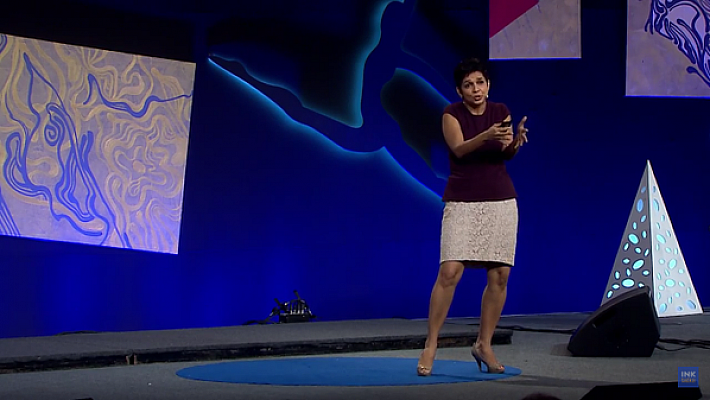
15. “The spirit of learning unlearning and re-learning – I see this everyday through my children!” Kirthiga Reddy spoke passionately about how women really can have it all and the importance of both personal and professional goals. “My new paradigm was to embrace the power of the ‘And’ versus the tyranny of the ‘Or.’ She decided to pursue motherhood and her professional ambition with equal vigour and today has two young daughters who inspire her daily and happens to be the managing director of Facebook India.
Related posts from Verve:
Verve Trending
Sorry. No data so far.
us on Facebook to stay updated with the latest trends

